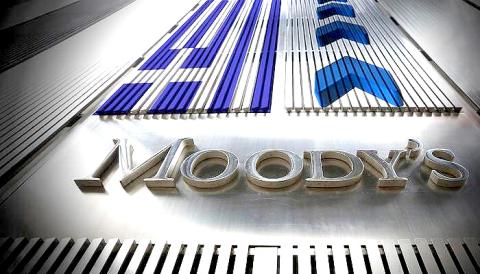

Financial rating company, Moody’s, has predicted that Nigeria will not interfere with its multiple exchange rates until new oil refineries and fertilizer plants come on stream.
Africa’s richest man, Aliko Dangote, is building 650,000 barrels per day refinery with fertilizer and chemical plants in Lagos.
The refinery complex is expected to begin production in 2019.
The investment analysis firm believes Nigeria’s apex bank will not tamper with the different rates until the country is able to reduce its need for huge amount of dollars for the importation of items like petroleum products.
Aurelien Mali, a sovereign analyst with Moody’s in an interview with Bloomberg last week said this is because the Nigerian government will not be able to provide discounted dollars to importers of petrol if they unify the exchange rate now: “If the government merges the exchange rates, they won’t be able to provide discounted dollars to oil marketers. It means that either they have to increase pump prices or give subsidies to marketers, which would impact public finances. Neither option is credible at the moment.”
Nigeria’s National Petroleum Corporation (NNPC), is already subsidizing the cost of petrol, as the current price of N145 is below the estimated cost of import of N190.
Mali maintains that scaling up the cost of petroleum prices will destroy the hard-earned gains of Muhammadu Buhari’s government: “Increasing pump prices now would destroy all the efforts of the Central Bank on inflation. The moment you have a strong structural trade surplus and when the usage of dollars decreases is when we think they will align the exchange-rate windows. For example, when the new refineries or fertilizer plants are online.”
During a hearing in the National Assembly on the three-months-long fuel crisis that spanned December 2017 to March 2018, Nigeria’s Minister of State for Petroleum, Ibe Kachikwu, proposed the idea of giving petrol importers dollars at N285.
The country already has an official exchange rate of N305, a Central bank rate to banks of N338, an investor exporter window/NAFEX N360, a parallel market rate of N360-370 and several other sector-based windows.
Mali said Central Bank of Nigeria’s management of the naira has prevented it from weakening and has caused the national reserves to soar to $48 billion.
He added that the country’s reserves will reach $55 billion by the end of the year. The Moody’s analyst was unsure of what the eventual rate will be.
He, however, noted that the spinning wheel might stop at N360: “The jury’s out on whether it will be 305 or 360. For the real economy, the rate is already 360. That’s what many exporters, importers, and manufacturers have to use. It’s the de facto exchange rate,” he said.